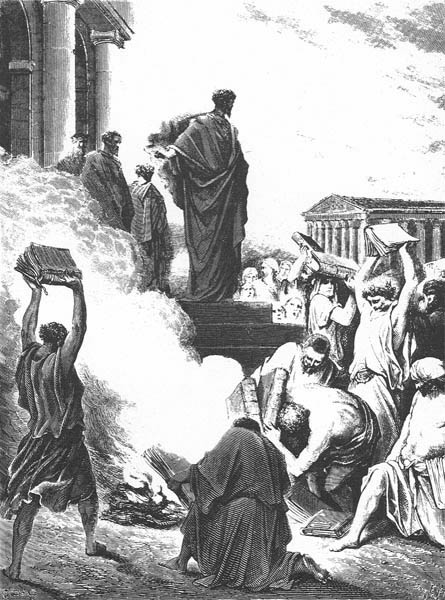Image Details

Books of magic valued at “fifty thousand pieces of silver” (Acts 19:19) burn at Ephesus in this drawing by the French illustrator Gustave Dore (1832?–1883). After Saint Paul performed some miraculous healings and exorcisms at Ephesus, according to Acts some Jewish exorcists tried to match his deeds. But “the evil spirit answered them: ‘Jesus I know, and Paul I know; but who are you?’” Then the person possessed by the evil spirit drove away the Jewish exorcists. When news of the incident spread throughout Ephesus, many of the city’s magicians confessed their practices and burned their books (Acts 19:11–20). Paul’s victory over Jewish magicians here and in an earlier confrontation in Cyprus (Acts 13:8–11) represents the failure of the Jews to outclass Paul and the gospel in the supernatural realm. In other incidents recounted in Acts, Paul is first welcomed and then rejected by various synagogues that he visits. This hostile portrayal of Jews in Acts—broader and more intense than in Paul’s letters, which were written earlier—reflects the growing enmity that arose over whether gentile converts to Christianity had to be circumcised.
